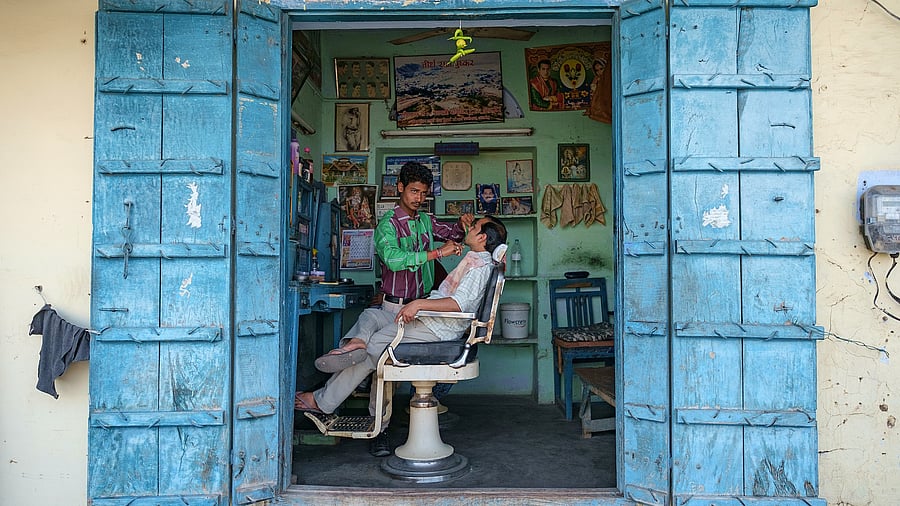
Representative image showing a barber shop
Credit: iStock Photo
Ahmedabad: While digital platforms like Urban Company have provided economic progress to many, the barbers or nais find the relocation of their work from barbershop to customers' homes "humiliating" as it reminds them of "servitude" their ancestors were subjected to before brick-and-mortar salons came into being.
A recent study titled ‘Men in Beauty Work and Feminization of Digital Labor Platforms’, published in Social Media and Society, an academic journal by SAGE Publishing, has found that barbershops gave nais economic freedom as well as escape from the caste-based discrimination they faced while serving upper caste back home, the modern day tech-based platforms is putting them back in similar situation for providing services to customers at homes.
"For Nais, customers’ homes are a symbol of servitude. It is where their ancestors suffered humiliation and indignity. Barbershop, on the other hand, is associated with freedom, dignity, self-esteem and reliance," says the study, co-authored by Sai Amulya Komarraju, Assistant Professor at IIMA; Prof. Manisha Pathak-Shelat from MICA, Ahmedabad; Payal Arora, Professor of Inclusive AI Cultures at Utrecht University, Netherlands; and Prof. Usha Raman from the University of Hyderabad.
"UC (Urban Company) and any other platform like it are regarded as platforms of servitude because they relocate work from barbershops back to customers’ homes, undoing any progress they have been able to achieve over the years," the authors have noted in the study.
It says that Nais' find home services humiliating due to "multiple entanglements of colonisation and caste politics that have led to the diminishing role of the once highly-killed Nais in Hindu society."
The barbers, part of the study, said that they didn't associate tech-based platform work with progress, rather they looked at it as "a reversal of hard-earned freedom from servitude." It says that liberalisation made it possible for people from other castes to venture into salon business.
"Increasing competition, rise of the new middle classes, increasing disposable incomes, and new ideals of beauty and luxury drew upwardly mobile populations away from barbershops," says the study, adding that barbers were left to cater to a niche segment of lower-middle classes.
"Now, platforms are beginning to “snatch” whatever little business they are left with," finds the study. It says that "platformisation threatens the survival of existing barbershops" which have been a symbol of freedom and entrepreneurial spirit.
"It is exactly this tension between staying afloat, earning a livelihood and preserving their (caste) dignity that has led to cognitive dissonance among Nai workers associated with UC," the study says.
It flags three issues affecting the barbers who are associated with such platforms. These issues are "limited personal autonomy, surveillance and constantly changing terms and conditions." Surveillance, according to the study, covers all aspects of work including frequency of availability, their dressing, time allocated, charges and relationship between customer and service provider.
Giving an example, it says, "Workers make it a point to carry their water bottles. On occasion when they request customers to replenish their bottles, they pass off tap water as filter water rather than enter the kitchen where water purifiers are generally installed. While workers did not make the connection to caste, it isn’t much of a stretch to imagine that some customers may think it is polluting to carry water bottles used by Nais into their kitchen."
The study while acknowledging that the platforms have enabled "entrepreneurship, economic and social mobility" they also "reproduce, reify, and reconfigure local social inequities and precarities. Platform mobilities are structured by (pre) existing hierarchies and relationships."
The study also highlights how brick-and-mortar salons allow its workers to progress from mere regular hairstylists to experts as well as moving from single-sex services to unisex, platform offers few such opportunities or upskilling. "The scope for career progression or escalation is limited in platformised beauty work," the authors wrote.